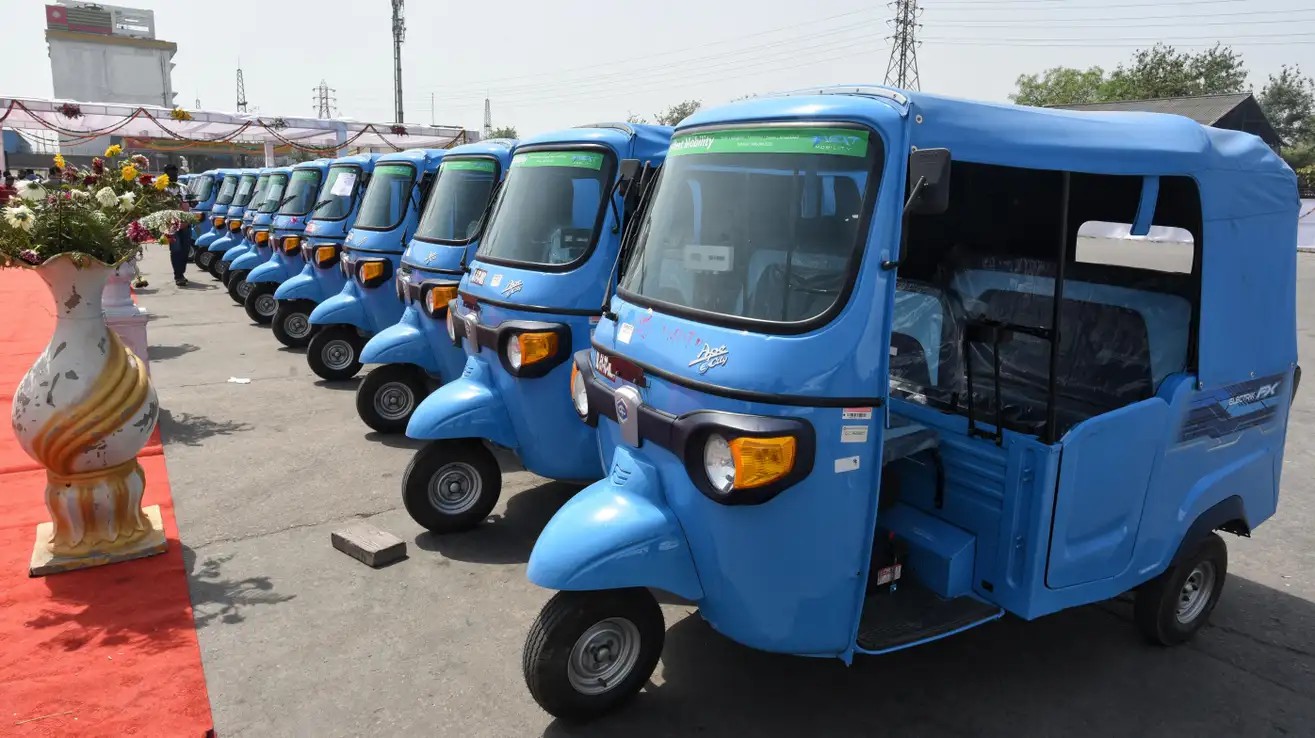E-rickshaws have received huge attention in India, with latest figures showing they accounted for half of the country’s rickshaw sales last year. The surge in popularity reflects the growing trend of sustainable and eco-friendly transportation options in the country.
The rise of e-rickshaws is a testament to the growing awareness and adoption of clean energy solutions in India. With the government’s emphasis on reducing carbon emissions and promoting electric mobility, the e-rickshaw market has seen a significant surge in demand. This shift towards e-rickshaws is driven not only by environmental concerns but also by the economic benefits they provide to drivers and passengers.
One of the key factors in the success of e-rickshaws is their cost-effectiveness. Electric rickshaws are more economical to run than traditional fuel-powered rickshaws because they run on electricity, which is generally cheaper than traditional fuels. This makes them an attractive option for drivers looking to reduce operating costs and increase income. Additionally, the lower maintenance requirements of e-rickshaws further enhance their cost-effectiveness, making them a viable option for drivers looking for long-term savings.
Furthermore, the shift to e-rickshaws is in line with the government’s ambitious goal of electrifying the transportation sector. Through initiatives like the Faster Adoption and Manufacturing of Hybrid and Electric Vehicles (FAME) scheme, the Indian government has been actively promoting the adoption of electric vehicles, including rickshaws, by providing incentives and subsidies to manufacturers and buyers. These policy measures have played a key role in promoting the widespread popularity of electric vehicles across the country.
In addition to economic and policy drivers, the environmental benefits of electric vehicles cannot be ignored. By replacing traditional rickshaws with electric vehicles, the transport sector can significantly reduce its carbon footprint and help mitigate air pollution in urban areas. The shift to e-rickshaws is in line with India’s commitment to combating climate change and improving air quality, making it a key step towards a more sustainable and greener future.
The surge in e-rickshaw sales also reflects changing consumer preferences, with passengers increasingly opting for cleaner and quieter modes of transportation. Electric tricycles provide a more comfortable and environmentally friendly travel experience, in line with consumers’ growing awareness of environmental protection. As a result, the demand for e-rickshaws has been growing steadily, prompting manufacturers to increase production to meet the growing market demand.
Looking ahead, the momentum behind e-rickshaws is expected to continue, driven by continued technological advancements, supportive government policies, and the shift towards sustainable transportation solutions. As EV infrastructure continues to improve and charging stations become more common, e-rickshaw adoption is likely to accelerate further, paving the way for a cleaner and more efficient urban transportation ecosystem in India.
All told, e-rickshaws accounted for half of India’s rickshaw sales last year, a significant milestone that highlights the transformative impact of sustainable transportation solutions in the country. With their cost-effectiveness, environmental benefits and growing consumer demand, e-rickshaws will play a key role in shaping the future of urban transportation in India. As the country continues to move toward a greener, more sustainable future, e-rickshaws will become the cornerstone of an evolving transportation landscape, driving positive change and creating a cleaner, healthier environment for all.
Statement: The picture and text come from the Internet, compiled and published according to public information, reproduced for the purpose of disseminating information, if there is any infringement or violation, please contact us to delete. If you need to reprint or quote the materials of this article, please indicate the source.
Post time: Mar-15-2024

